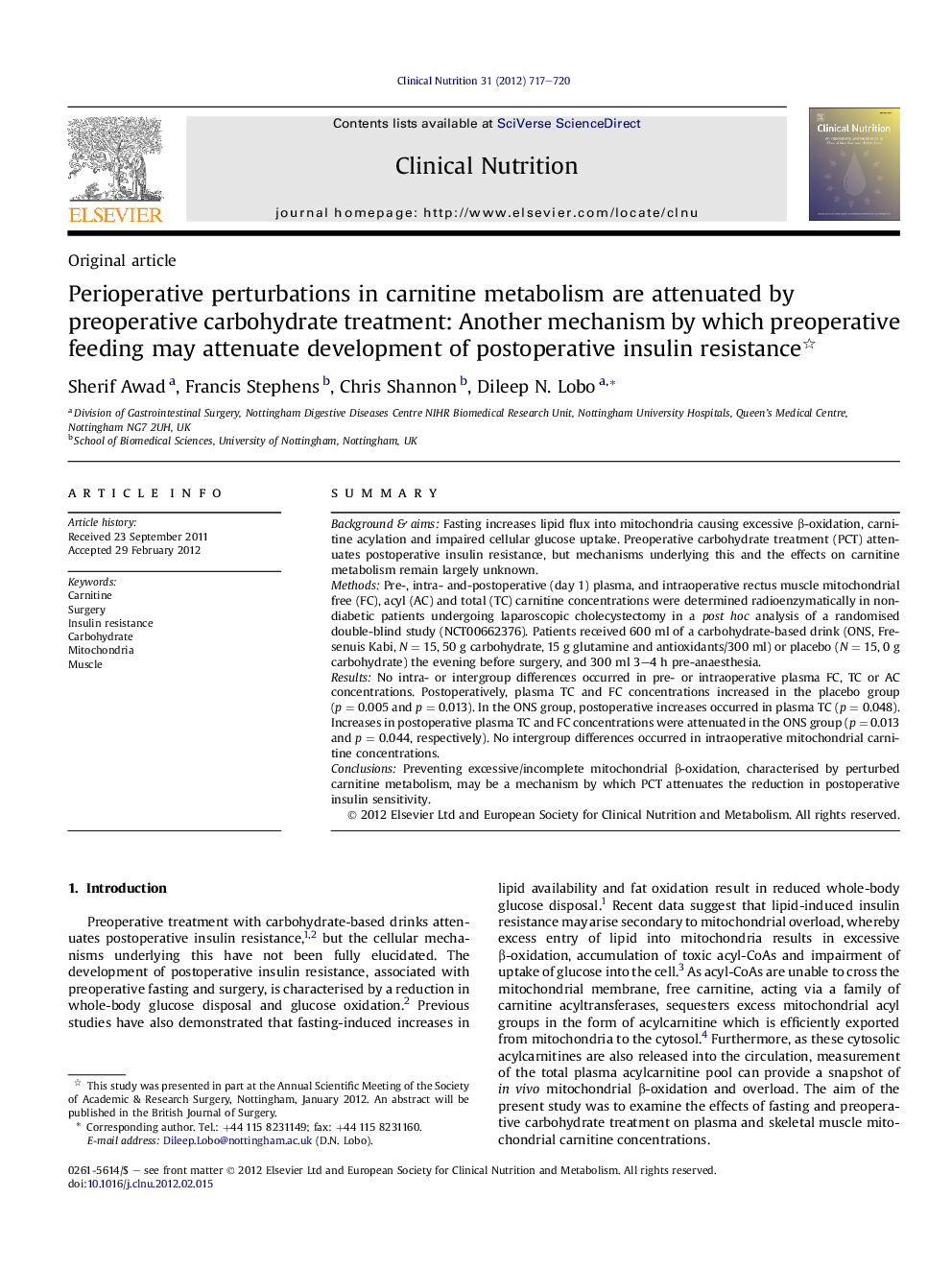| Article ID | Journal | Published Year | Pages | File Type |
|---|---|---|---|---|
| 2687145 | Clinical Nutrition | 2012 | 4 Pages |
SummaryBackground & aimsFasting increases lipid flux into mitochondria causing excessive β-oxidation, carnitine acylation and impaired cellular glucose uptake. Preoperative carbohydrate treatment (PCT) attenuates postoperative insulin resistance, but mechanisms underlying this and the effects on carnitine metabolism remain largely unknown.MethodsPre-, intra- and-postoperative (day 1) plasma, and intraoperative rectus muscle mitochondrial free (FC), acyl (AC) and total (TC) carnitine concentrations were determined radioenzymatically in non-diabetic patients undergoing laparoscopic cholecystectomy in a post hoc analysis of a randomised double-blind study (NCT00662376). Patients received 600 ml of a carbohydrate-based drink (ONS, Fresenuis Kabi, N = 15, 50 g carbohydrate, 15 g glutamine and antioxidants/300 ml) or placebo (N = 15, 0 g carbohydrate) the evening before surgery, and 300 ml 3–4 h pre-anaesthesia.ResultsNo intra- or intergroup differences occurred in pre- or intraoperative plasma FC, TC or AC concentrations. Postoperatively, plasma TC and FC concentrations increased in the placebo group (p = 0.005 and p = 0.013). In the ONS group, postoperative increases occurred in plasma TC (p = 0.048). Increases in postoperative plasma TC and FC concentrations were attenuated in the ONS group (p = 0.013 and p = 0.044, respectively). No intergroup differences occurred in intraoperative mitochondrial carnitine concentrations.ConclusionsPreventing excessive/incomplete mitochondrial β-oxidation, characterised by perturbed carnitine metabolism, may be a mechanism by which PCT attenuates the reduction in postoperative insulin sensitivity.
